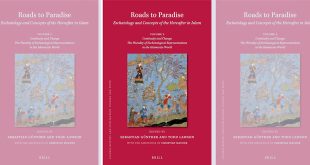This article presents reflections from an ethnographic study of the meaning and perception of the marjaʿiyyah among Shiʿa lay Muslims in Kuwait.
Studies of the marjaʿiyyah often focus on the religious authorities themselves and more rarely on the followers – muqallids – of various marjaʿs. This article presents reflections from an ethnographic study of the meaning and perception of the marjaʿiyyah among Shiʿa lay Muslims in Kuwait. The Shiʿa in Kuwait form an ethnically varied minority, and most enjoy a good position within the Sunni regime in comparison to other Gulf countries. They follow a number of different marjaʿs, and to many Shiʿa in Kuwait, the advice of the marjaʿ and the question of which marjaʿ to follow are quite important. The article focuses on the methodological issue of lay perspectives of the marjaʿiyyah, suggesting how ethnographic approaches may enrich the study of religious authority. In the article, I primarily follow ʿAlī, a key informant among others in my fieldwork, and I particularly address what must be the point of departure for the institution of the marjaʿiyyah, as seen from the perspective of the muqallid: the uncertainty of religious affairs where the muqallid renders authority to the marjaʿ.
Bibliographic Information
Title: Marjaʿiyyah from Below: Anthropological Approaches to the Study of Religious Authority
Author: Thomas Fibiger
Published in: Journal of Shi’a Islamic Studies Volume 8, Number 4, Autumn 2015 pp. 473-489
Language: English
Length: 16 pages
 Marjaʿiyyah from Below Anthropological Approaches to the Study of Religious Authority
Marjaʿiyyah from Below Anthropological Approaches to the Study of Religious Authority
 Ijtihad Network Being Wise and Faithful Muslim in the Contemporary World
Ijtihad Network Being Wise and Faithful Muslim in the Contemporary World
